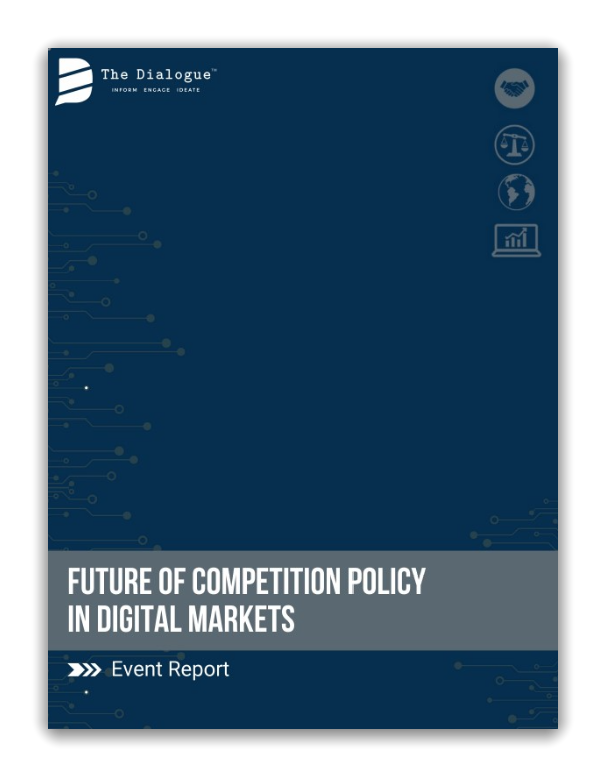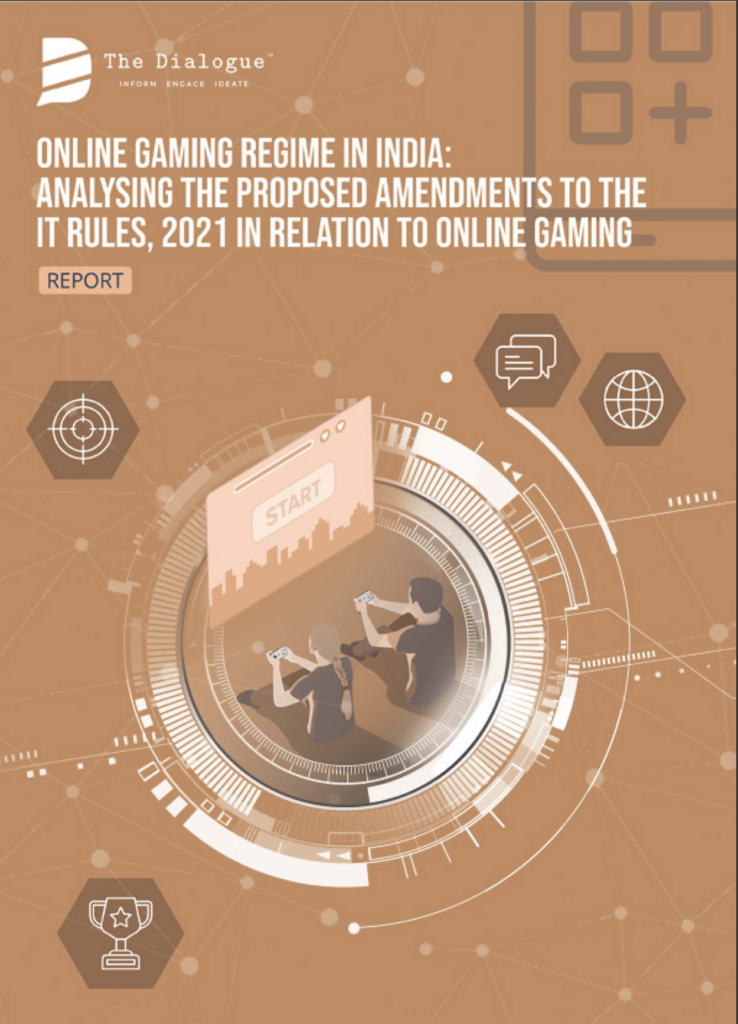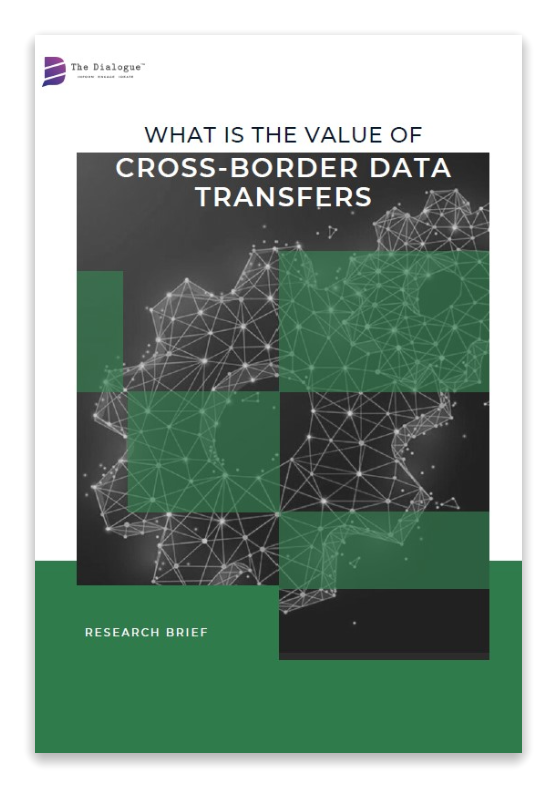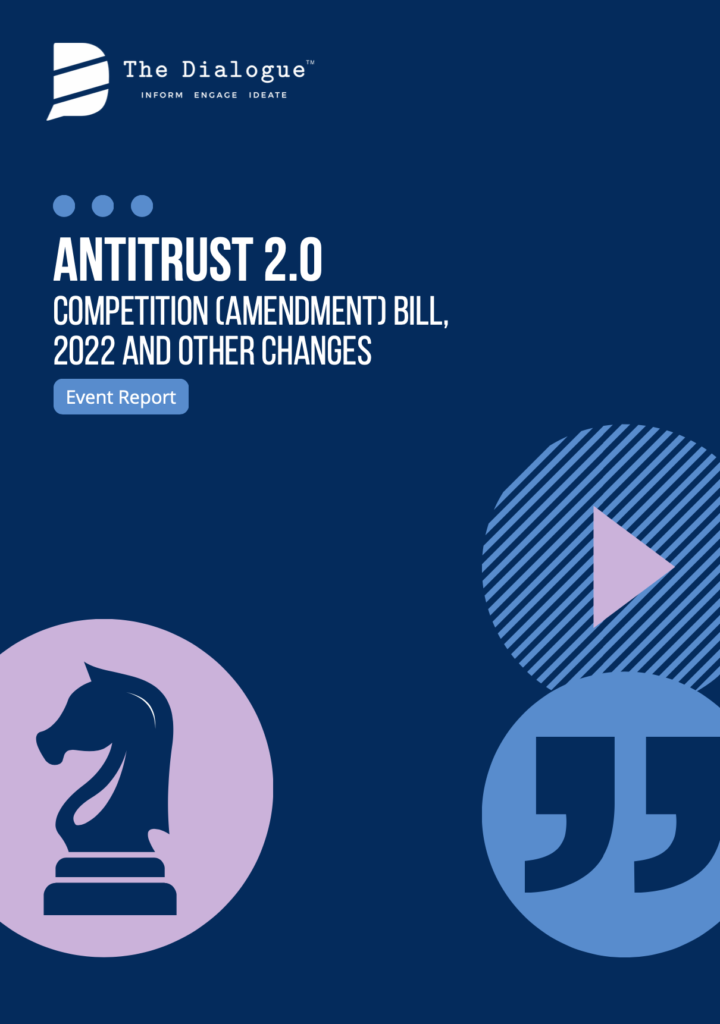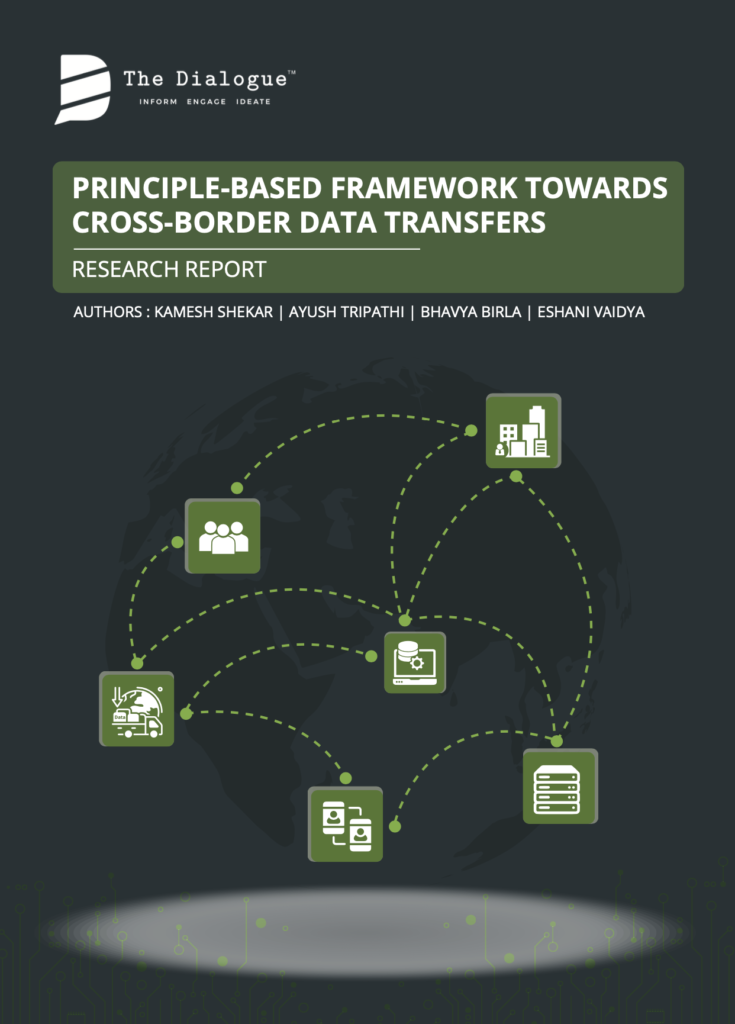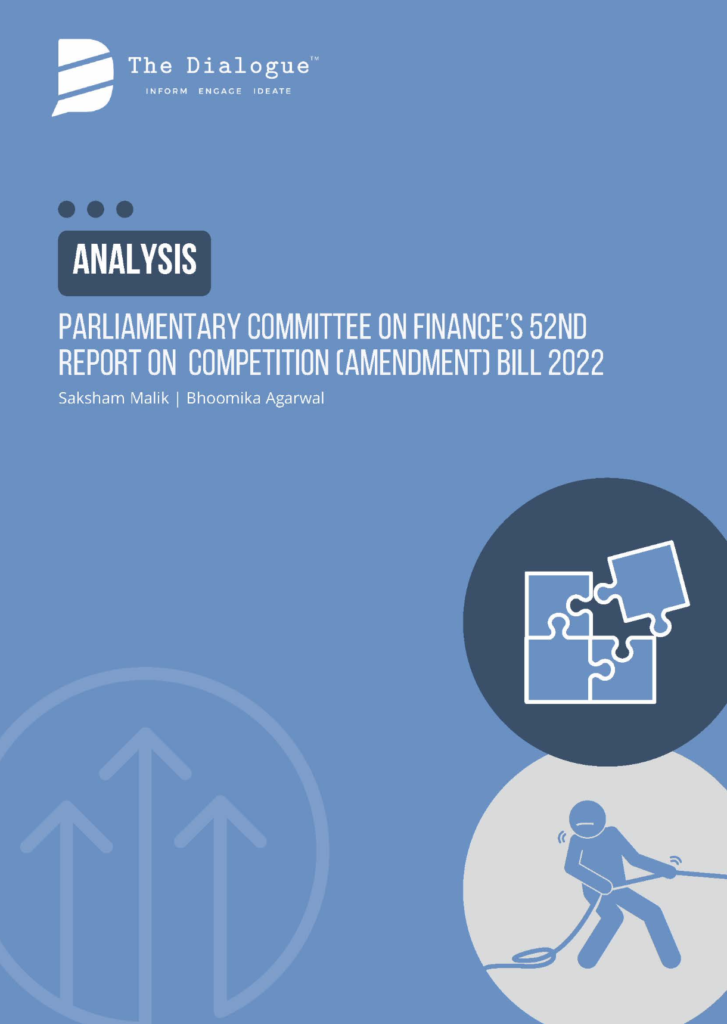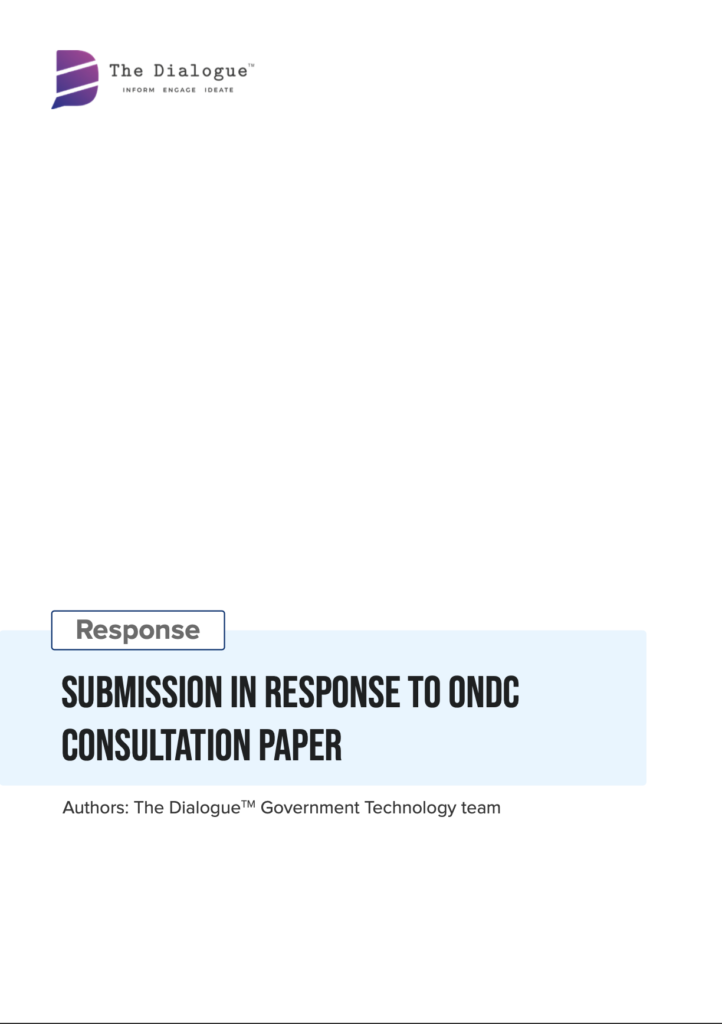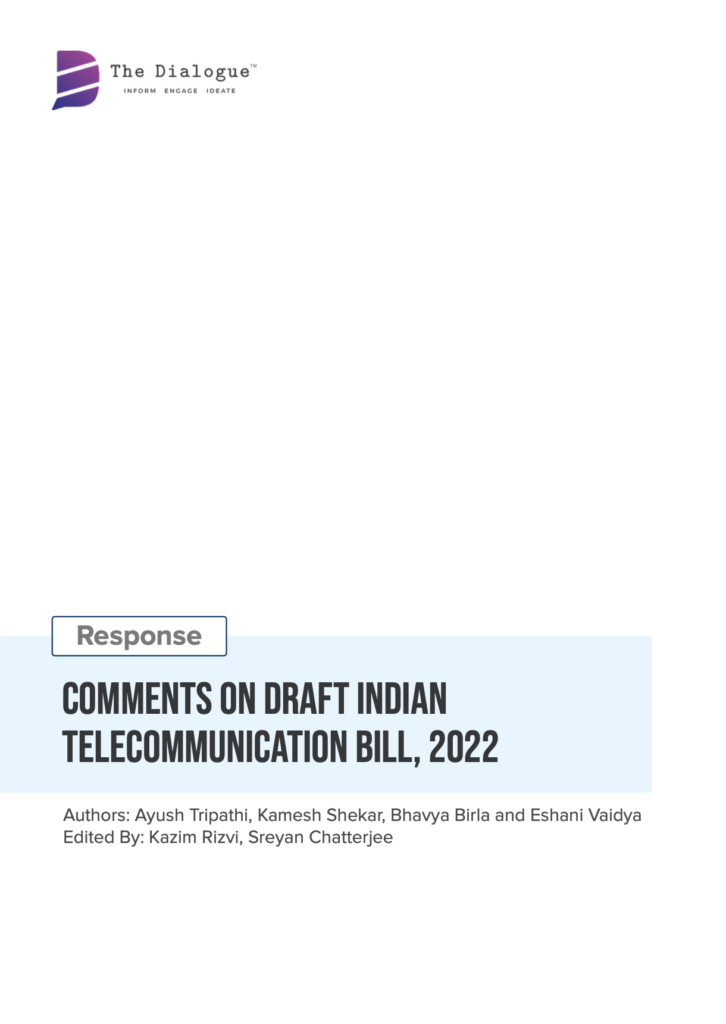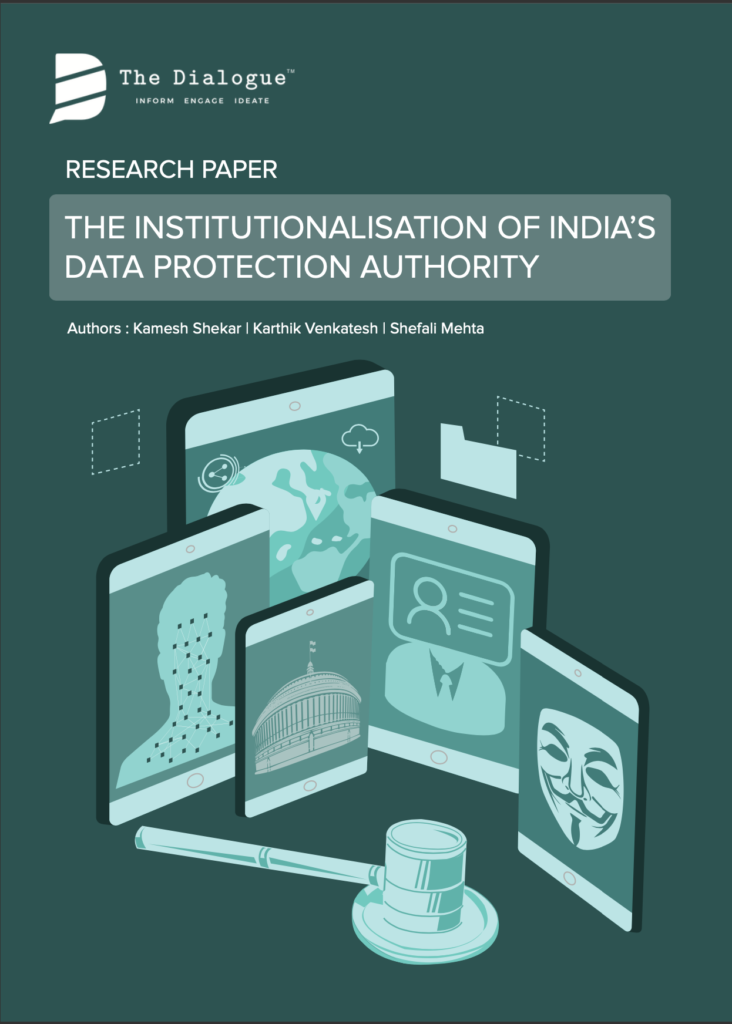Event Report: Future of Competition Policy in Digital Markets
Aiming to add to the ongoing discourse on policy and regulatory approaches to addressing competition issues in digital markets, The Dialogue hosted a virtual roundtable discussion titled, ‘Future of Competition Policy in Digital Markets’ on March 10, 2023. The Roundtable opened with a panel discussion featuring Dr. Amar Patnaik, Member of Parliament, Rajya Sabha, Dr. […]
Event Report: Future of Competition Policy in Digital Markets Read More »
